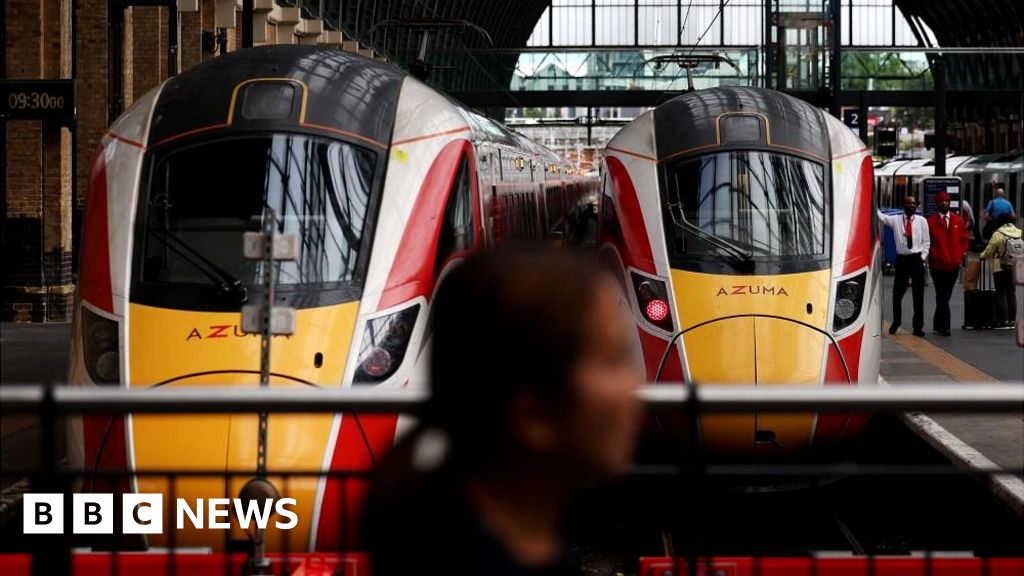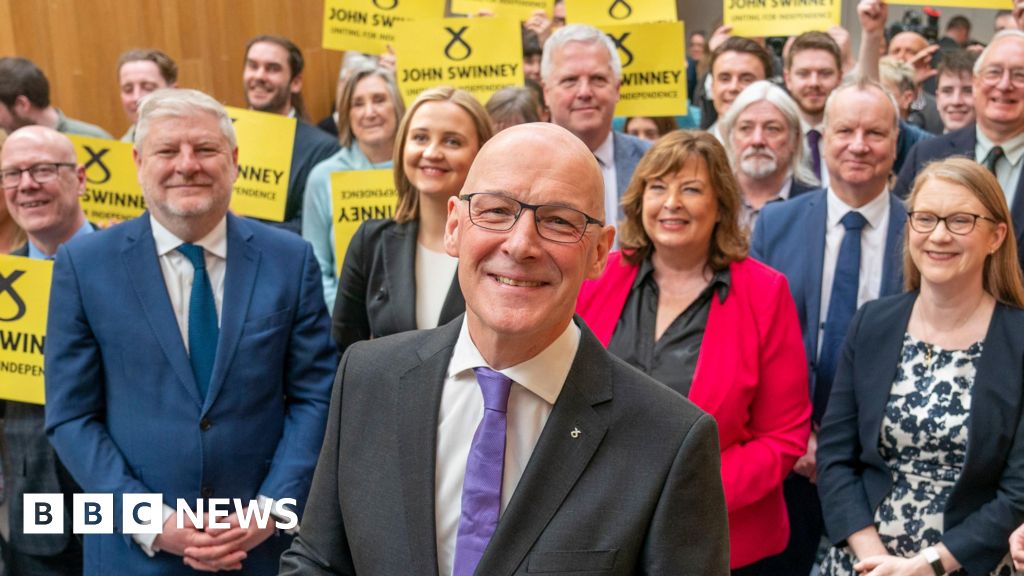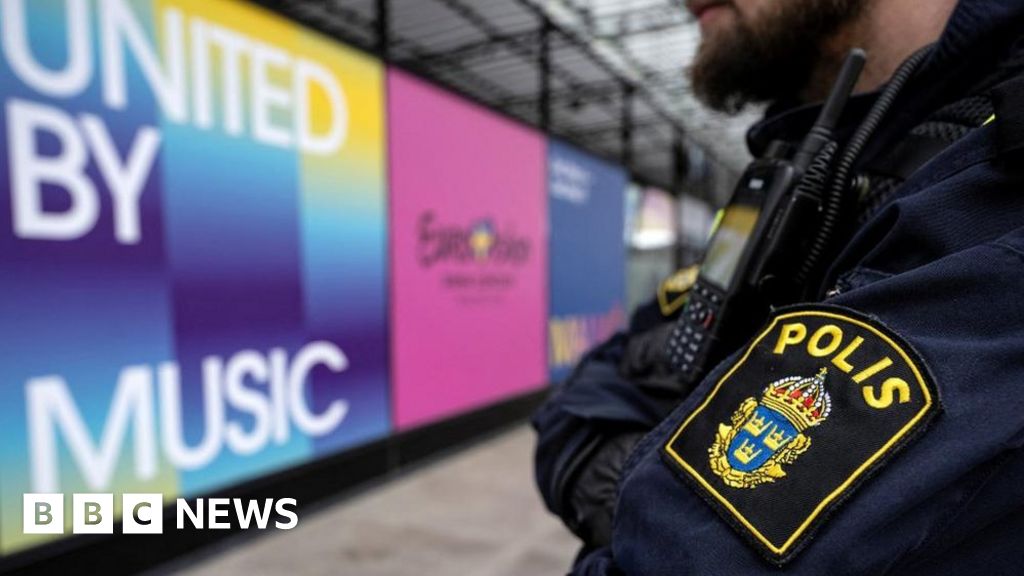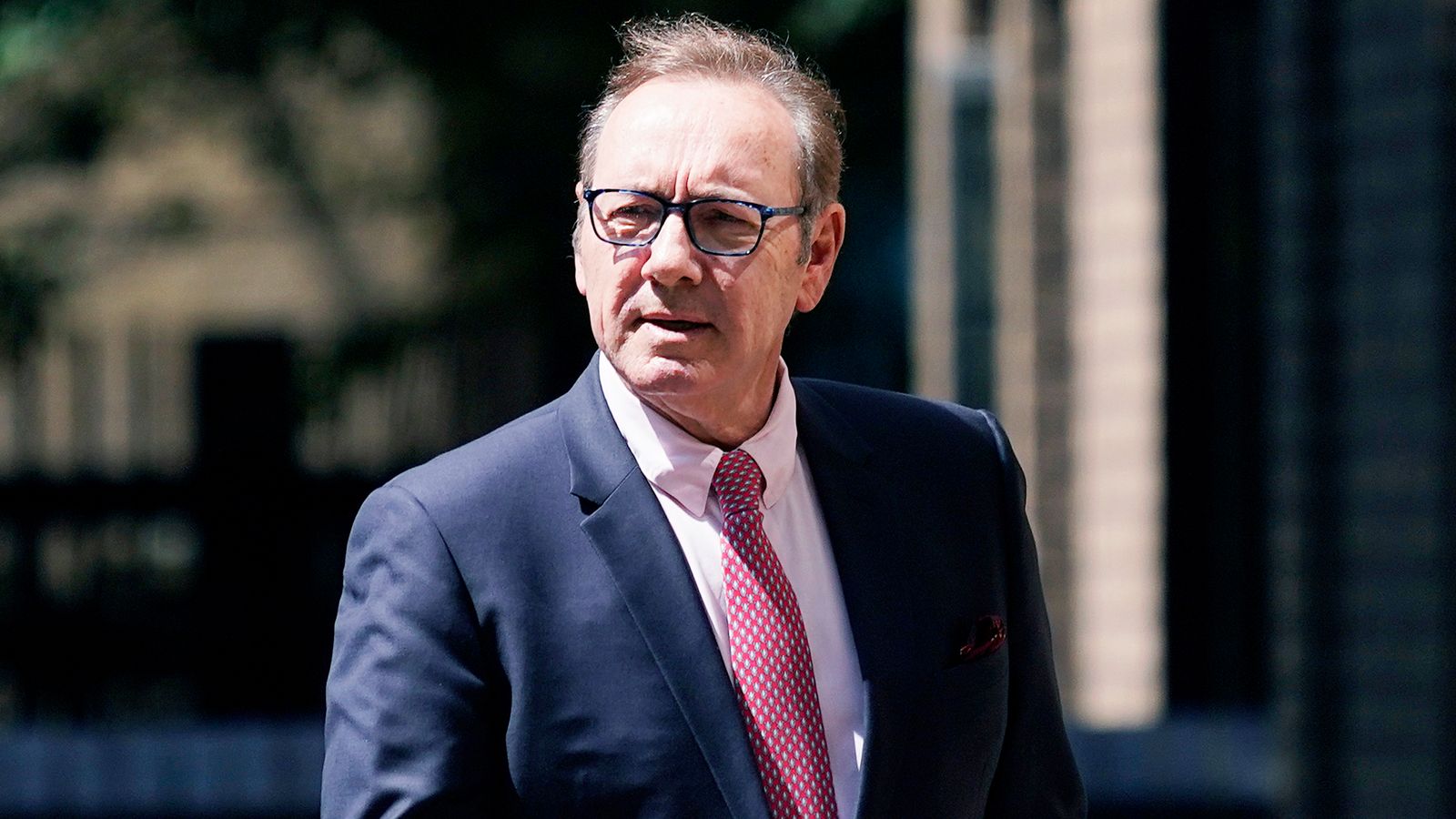- By Katy Austin, transport correspondent, & Kate Whannel
- BBC News
Labour says it expects to renationalise most passenger rail services within five years, if it is elected.
The party says it will meet the pledge by bringing passenger services into public control as the contracts expire – but there will still be a role for the private sector.
Automatic refunds for train delays and improved internet connections are among a series of other railway pledges.
Rail Minister Huw Merriman said the plans were “pointless” and “unfunded”.
“They don’t have a plan to pay for the bill attached to their rail nationalisation,” he said. “Without a plan to pay for this, it means one thing: taxes will rise on hard working people.”
The word “nationalisation” doesn’t appear in Labour’s plan, but that is what it in effect amounts to.
Shadow transport secretary Louise Haigh, who announced the plans, said there would still be a role for the private sector.
She added her party were not “ideologues” and that it was right to use private companies, where they add value.
Labour would still allow privately financed “Open Access operators”, such as Hull Trains and Lumo, to continue.
Open Access operators currently run a relatively very small proportion of services. They run independently of government funding and are often in competition with franchised operators.
Labour is also not planning to nationalise rail freight companies or rolling stock companies.
Private train companies have overseen a boom in rail usage in the UK since the days of British Rail, but they have also faced heavy criticism over fares and reliability.
Four major operators, including TransPennine Express, have also been taken under public control and are being run by the government’s Operator of Last Resort model.
The government has already promised to set up a new public sector body, named the Great British Railways which would be responsible for rail infrastructure and awarding contracts to private companies.
The plans were initially announced in 2021 but have been delayed and although a draft bill to implement the proposal has now been published, it is unlikely to become law before the general election expected this year.
During the pandemic, the government in effect took control of the railway, with most train companies in England moving onto contracts where they get a fixed fee to run services, and the taxpayer carries the financial risk.
Like the government, Labour is pledging to establish Great British Railways but says it would be led by “rail experts rather than Whitehall”.
The party says the move to bring services back into public control would not cost the taxpayer “a penny in compensation costs”.
The pledge may not cover every current passenger rail service. The contract for Abellio East Midlands expires in October 2030.
Speaking to BBC News, Ms Haigh said the current system “was not working” and had led to delays and overcrowding.
She said the model was beset by “competing interests” and that bringing services together under Great British Railways would improve passengers’ experience.
Labour says “significant” savings can be made through public ownership including by reducing friction between operators and having less duplication of resources.
It says the government estimated in a 2021 reform plan that it could save £1.5bn annually after five years by ending inefficiency and fragmentation.
The party will also pledge to deliver automatic refunds for delayed and cancelled journeys, better internet connection on trains and “a best-price ticket guarantee” ensuring passengers automatically pay the lowest possible amount for tickets when making contactless payments.
Ms Haigh said the guarantee would not necessarily mean cheaper prices but that the system would be “more transparent and clearer”. The government has also said it wants to simplify ticketing.
She said a new watchdog – the Passenger Standards Authority – would “mercilessly” hold Great British Railways to account.
Asked how soon passengers would see the improvements to services Labour claim would result from taking train companies into its version of GBR, Ms Haigh said: “We know there are no quick fixes and we’re not going to see enormous change overnight. It will take time to legislate and put the structural changes in place.”
She also said Labour had no plans to close ticket offices.
Asked how Labour would try to resolve the ongoing pay dispute with the train drivers’ union Aslef, she said they would “sit down and work out” an answer, pointing out the transport secretary had not met the union since early last year.
She told the BBC her party would “always want to modernise the railways and working practices”, but this needed to be “done in partnership with the workforce and not treating them as an enemy”. She said Labour would not be separating reforms from the negotiations.
She did not say whether Labour would increase the pay offer on the table.
Andy Bagnall, chief executive of Rail Partners, which represents train companies, told BBC Radio 4’s Today programme while he agreed there was a need for “radical change”, nationalisation was not the way to achieve it.
He said the “best of both worlds” was to have Great British Railways as a public sector body while harnessing private operators to “attract passengers back and regrow the railway”.
This would ensure “the railway takes as little subsidy as possible” he said.
“That’s the danger with nationalisation – we believe that without that commercial focus, costs would creep up over time, revenue growth will be slower and the taxpayer is the one that loses out.”
Liberal Democrat transport spokesperson Wera Hobhouse said the Conservatives had “left commuters paying higher prices for poor services and endless disruption”.
“The Liberal Democrats want a plan which puts commuters first by establishing the Great British Railway body after years of the government dithering.”
RMT general secretary Mick Lynch said Labour’s plan to bring train operating companies into a publicly-owned network was “in the best interests of railway workers, passengers and the taxpayer”.
But the plan “should be a first step to completely integrating all of our railway into public ownership,” he added.

William Turner is a seasoned U.K. correspondent with a deep understanding of domestic affairs. With a passion for British politics and culture, he provides insightful analysis and comprehensive coverage of events within the United Kingdom.








